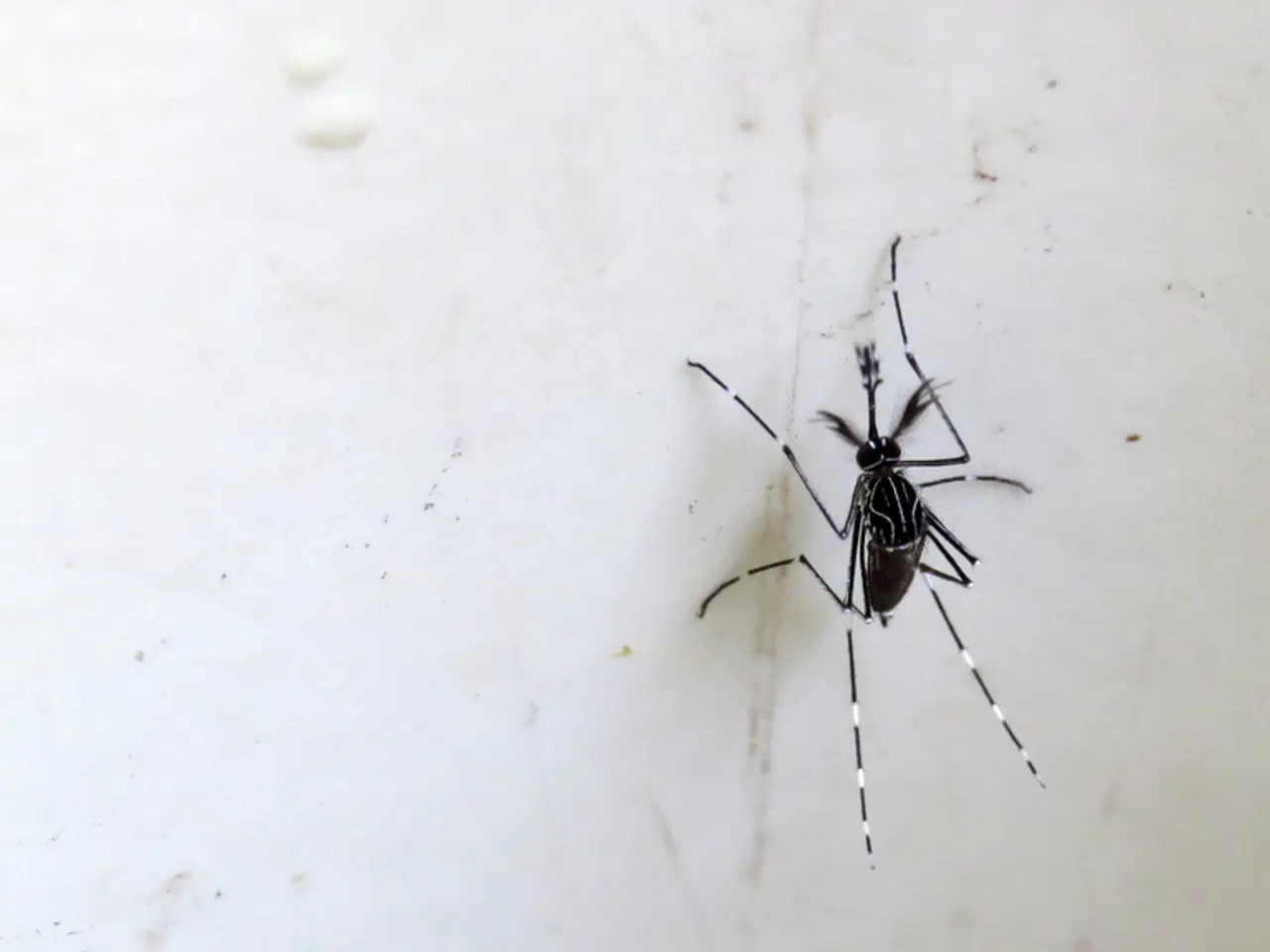Strategies for Effective Deterrence of Mosquito Bites
Mosquitoes can be a nuisance during outdoor activities, and their bites can cause itchy discomfort. Fortunately, there are various mosquito repellents available to help protect you from these pesky insects.
Many mosquito repellents contain the active ingredient DEET (Diethyltoluamide), which provides good protection against mosquito bites. However, DEET can cause eye irritation and allergic skin reactions, especially in sensitive individuals. To minimize these risks, it's essential to apply DEET-based products evenly on all exposed skin and reapply as directed on the product label, especially after swimming or heavy sweating.
For safe and non-allergenic alternatives to DEET, consider using Picaridin, Oil of Lemon Eucalyptus (OLE)/PMD, IR3535, or natural plant-based repellents. Picaridin, a synthetic repellent modeled after a natural compound found in black pepper, is as effective as DEET with a lighter, non-greasy feel and no strong odor. It does not damage plastics and is safe for children over 6 months.
Oil of Lemon Eucalyptus (OLE)/PMD, a plant-based repellent derived from the lemon eucalyptus tree, provides up to 5-6 hours of protection. However, it should not be used on children under 3 years old due to potential skin irritation.
IR3535, a synthetic repellent mimicking natural amino acids, is mild on skin and safe for most children, though it may require more frequent reapplication.
Natural plant-based repellents such as citronella, neem, lemongrass, lavender, basil, and peppermint oils offer shorter protection, typically 1–2 hours, and may be used as complementary measures or for cosmetic preference, but are generally less effective over long durations.
Innovative physical methods like smoldering soda cans with twine inside have been shown to repel mosquitoes in outdoor settings without chemicals.
When outdoors for extended periods, combining repellent use with physical barriers like mosquito nets or screens enhances protection. Wearing long sleeves and pants can further reduce bites by limiting exposed skin.
Remember, mosquitoes have a keen sense of smell, so wearing lighter tones of clothing can help repel them compared to darker ones. Mosquitoes can still bite through a thin layer of tightly fitted fabric, so it's essential to cover up as much as possible.
Showering before bed can help reduce mosquito attraction, as can covering irritated skin and wounds with clothing. Fine-mesh nets over beds or baby carriages can protect against mosquito bites, especially in regions with disease-carrying mosquitoes.
For children younger than two months, it's best to avoid DEET and OLE. Always select products suited to the user’s age and skin sensitivity. Always follow product instructions for application and reapplication frequency. Test new repellents on a small skin area to check for allergic reactions before full use.
By combining thoughtful application of recommended repellents with physical barriers and environmental controls, you can achieve maximum protection against mosquito bites while minimizing allergenic risks. Stay safe and enjoy your outdoor activities!
Science has led to the development of several mosquito repellents, such as Picaridin, Oil of Lemon Eucalyptus, IR3535, and various natural plant-based oils. (Science)
Health-and-wellness enthusiasts might prefer using plant-based skin-care products like lemon eucalyptus oil, but it's crucial to ensure they're safe for all ages, especially children. (health-and-wellness, skin-care)




